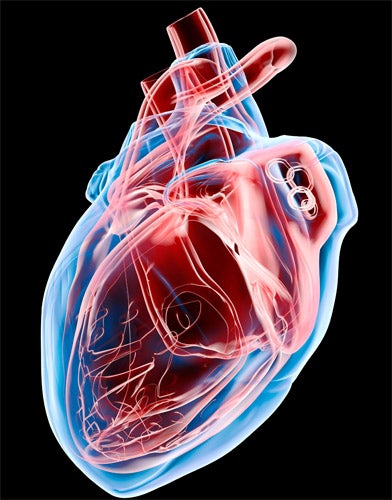Worried about a heart attack? Avoid these...
Cocaine and sex are among things most likely to cause cardiac arrest, says study

Your support helps us to tell the story
From reproductive rights to climate change to Big Tech, The Independent is on the ground when the story is developing. Whether it's investigating the financials of Elon Musk's pro-Trump PAC or producing our latest documentary, 'The A Word', which shines a light on the American women fighting for reproductive rights, we know how important it is to parse out the facts from the messaging.
At such a critical moment in US history, we need reporters on the ground. Your donation allows us to keep sending journalists to speak to both sides of the story.
The Independent is trusted by Americans across the entire political spectrum. And unlike many other quality news outlets, we choose not to lock Americans out of our reporting and analysis with paywalls. We believe quality journalism should be available to everyone, paid for by those who can afford it.
Your support makes all the difference.The main triggers of heart attacks are drugs, overeating, anger and sex – in that order, research has shown.
A heart attack trigger is a factor that which explains why a heart attack occurs on a particular day or time. It is the final straw that triggers the attack and is distinct from the underlying cause, which may be a combination of smoking, poor diet, lack of exercise or being overweight.
A new ranking of these triggers shows they range from cocaine use, which increases the risk 23-fold, to a cup of coffee, which raises it 50 per cent. Some triggers lead to a big increase in risk – limited exposure reduces it.
As relatively few people take cocaine, despite the high risk to individual users, the drug triggers less than 1 per cent of all heart attacks. Coffee is widely drunk, so despite the relatively low risk to coffee drinkers, the beverage triggers one in 20 heart attacks. More than 2 per cent of heart attacks occur during or after sex (the exertion which triggers it).
If everyone stopped having sex, heart attacks could be reduced, but that is unlikely to be a popular public health message, noted Professor David Spiegelhalter yesterday.
The professor of the public understanding of risk at Cambridge University was commenting on the study by Belgian researchers, published in the Lancet. It showed that the biggest factor, in population terms, was traffic fumes, which triggers more than 7 per cent of all heart attacks.
Join our commenting forum
Join thought-provoking conversations, follow other Independent readers and see their replies
Comments